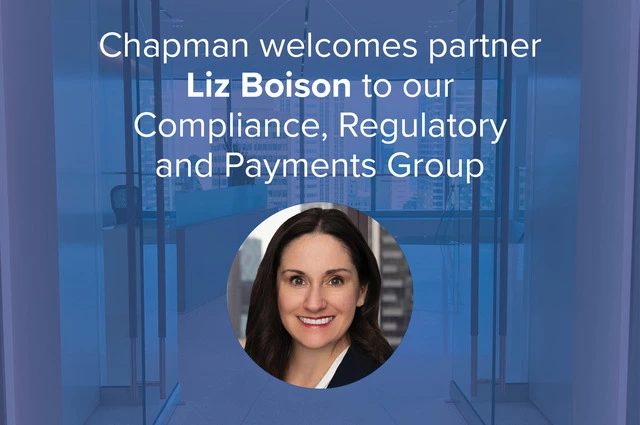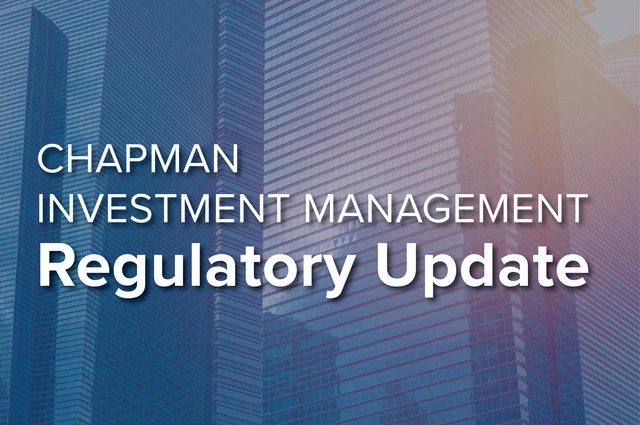- Topic: Corporate Governance
31 matches.
In an opinion issued on June 15, 2022, the Delaware Supreme Court reversed a decision by the Chancery Court and found that a transfer by an insolvent corporation of substantially all of its assets to a newly created entity (“SeeCubic”) controlled by its secured creditors, in full satisfaction of its debts, violated the corporation’s charter.
The Delaware Supreme Court is currently considering an appeal of a series of decisions by the Court of Chancery which held that a vote of a majority of shareholders is not required for an insolvent company to transfer its assets to its secured creditors.
- Independent Directors of Distressed Companies: Considerations for Appointment to the Governing Board
The proliferation of investments in small, family-owned and mid-cap companies by private equity funds has led to changes in corporate governance provisions in the acquired companies’ organizational documents. Some private equity funds team up with existing management and take a minority position in the acquired company, while others will make an investment only if they can acquire controlling interest or 100 percent ownership of a company. In cases where a fund acquires a controlling interest in a company, it will often populate the company’s governing body with the fund’s principals or employees and the company’s chief executive. The fund may also seek to add outside directors with industry expertise to help govern the company. Where a private equity fund acquires a non-controlling interest, it will often seek to protect its investment by having consent and/or veto rights for certain significant transactions – for instance, the incurrence of debt, issuance of additional equity, and acquisition or disposition of assets. Thus, the organizational documents of a company may contain provisions restricting certain activities without the requisite consent of certain directors or equity holders.
Environmental, Social and Governance investing in the United States has reportedly reached an estimated $250 billion in assets under management and is expected to see continued growth in 2021 and beyond.
- Law360
Since the U.S. Supreme Court’s 2010 decision in Citizens United, which effectively invalidated restrictions on certain corporate political contributions, various shareholder activists and corporate governance advocates have increasingly sought corporate disclosure of such contributions.
- March 2017
Since the U.S. Supreme Court’s 2010 decision in Citizens United, which effectively invalidated restrictions on certain corporate political contributions, various shareholder activists and corporate governance advocates have increasingly sought corporate disclosure of such contributions.
- February 2017Getting Governance Right: A Handbook for Today's CEOs and the Board of Directors (e-Book)
“Board refreshment” is currently a hot corporate governance topic. A board of directors’ ability to “refresh” itself on a regular basis can help ensure that the board is comprised of the proper mix of directors to meet both current and long‑term needs of the board, the company and shareholders, and provide the necessary oversight of the company’s evolving corporate strategy and risks.
- January 2017Insights: The Corporate & Securities Law Advisor
This update provides general information regarding say-on-pay frequency, summarizes the current say-on-pay frequency policies and positions of several large asset managers and pension funds, leading proxy advisory firms and certain corporate governance advocates, and presents practical considerations for boards to help facilitate discussion.
- September 2016Insights: The Corporate & Securities Law Advisor
Corporate boards increasingly are considering whether it is in the best interests of the board, the company and its shareholders to establish a separate risk committee. Investors, proxy advisory firms and other corporate governance advocates also have developed expectations with respect to board risk oversight responsibilities.
Today, many shareholders may feel that the traditional investor communication and relations model is not adequate. Often, written communications are viewed as impersonal and outdated and shareholder meetings typically occur only annually and are rarely seen as leading to meaningful dialogue.
- July 27, 2016 (Originally Published June 24, 2016)Corporate Compliance Insights
“Board refreshment” is currently a hot corporate governance topic. This corporate governance update focuses on director succession planning and the critical role it plays in board refreshment.
- Legal, Operations, and Strategy Briefs for Financial Institutions
In this edition:
- Recent Action by the OCC of Special Concern for Directors, Senior Managers, and Compliance Officers
- FDIC Provides Additional Guidance on Corporate Governance
- April 1, 2016 (Originally Published March 18, 2016)Law360
Law360 republished a Chapman Corporate Governance Quarterly Update.
- Corporate Governance Quarterly Update
Oversight of a company’s enterprise risks has recently evolved into one of the board’s most critical fiduciary duties and responsibilities. Since enterprise risks do not remain static and are often interrelated and complex, it is imperative that boards maintain continuous risk oversight.
- January 19, 2016 (Originally Published December 8, 2015)Law360
Law360 republished a Chapman Corporate Governance Quarterly Update.
- Corporate Governance Quarterly Update
With the 2016 proxy season quickly approaching, reporting companies will begin contemplating the various disclosures they will make. Increasingly, audit committees in particular are being asked to voluntarily provide enhanced disclosure relating to how they perform their oversight duties and responsibilities.
- October 2015 (Originally Published September 29, 2015)Insights: The Corporate & Securities Law Advisor
Insights: The Corporate & Securities Law Advisor republished an issue of Chapman's Corporate Governance Quarterly Update.
- August 13, 2015 (Originally Published June 29, 2015)The Columbia Law School Blue Sky Blog
The Columbia Law School Blue Sky Blog republished a Chapman Insights article.
- March/April 2015The Corporate Board
The Corporate Board published an article written by Chapman attorneys.
- March 2015Insights: The Corporate & Securities Law Advisor
Insights: The Corporate & Securities Law Advisor published an article based off a Chapman Insights article.
- The Harvard Law School Forum on Corporate Governance and Financial Regulation
The Harvard Law School Forum on Corporate Governance and Financial Regulation posted an article based on a recent Chapman Insights.
While proxy access did not garner significant attention over the past two proxy seasons, it has struck 2015 with a vengeance and is one of the most notable early developments of this proxy season.
- Corporate Governance Quarterly Update
Director tenure, board entrenchment, and board refreshment are corporate governance buzzwords that increasingly are becoming hot-button issues for institutional investors, proxy advisory firms, shareholder activists, and other governance advocates.
- The Harvard Law School Forum on Corporate Governance and Financial Regulation
An article based on a recent Chapman Client Alert was posted by the Harvard Law School Forum on Corporate Governance and Financial Regulation.
- October 2014Insights: The Corporate & Securities Law Advisor
A Chapman article was published in the October 2014 issue of Insights: The Corporate & Securities Law Advisor.
- Corporate Governance Quarterly Update
It has been reported that approximately two-thirds of companies in the U.S. are affected by fraud, losing an estimated 1.2% of revenue each year to such activity.
- The Harvard Law School Forum on Corporate Governance and Financial Regulation
A recent Chapman Insight on proxy advisory firms was posted by the Harvard Law School Forum on Corporate Governance and Financial Regulation.
- Corporate Governance Quarterly Update
The 2014 proxy season, like previous seasons, has provided shareholders of public US companies with an opportunity to vote on a number of corporate governance proposals and director elections.
- Client Alert
In accordance with provisions of the Jumpstart Our Business Startups Act, enacted in 2012, the staff of the Securities and Exchange Commission recently published a report on its review of disclosure requirements under SEC Regulation S-K.
- Client Alert
Institutional Shareholder Services Inc., a leading provider of proxy advisory and corporate governance services, recently released 2014 updates to its U.S. corporate governance policies.
- Client Alert
On September 18, 2013, in accordance with provisions of the Dodd-Frank Wall Street Reform and Consumer Protection Act of 2010, the Securities and Exchange Commission proposed an executive compensation disclosure rule that, if adopted, will require public companies to calculate and disclose in certain SEC filings (1) the median annual total compensation of all employees of the company, excluding the chief executive officer, (2) the annual total compensation of the company’s CEO and (3) the ratio of those two figures, such figures and ratio hereinafter referred to collectively, as the CEO pay ratio.









